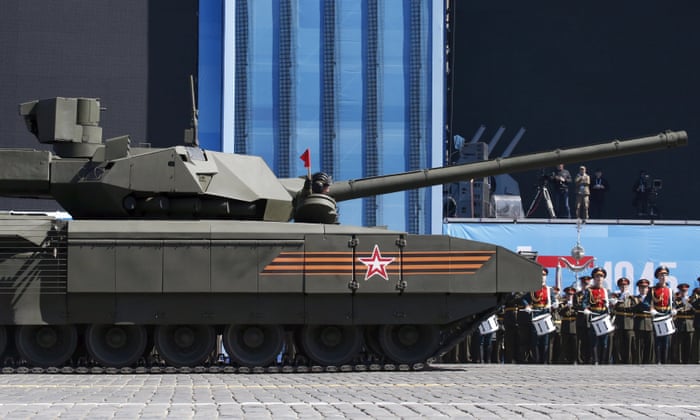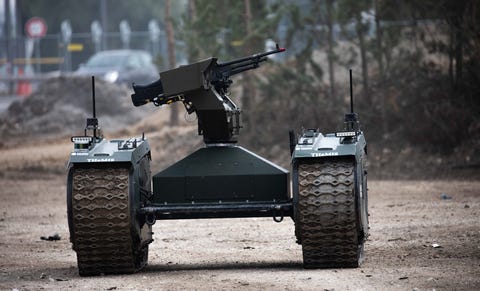Shades of Blade Runner
"Success in creating effective AI could be the biggest event in the history of our civilization. Or the worst."
"We just don't know."
"So, we cannot know if we will be infinitely helped by AI, or ignored by it and sidelined, or conceivably destroyed by it."
Stephen Hawking, 2017
 |
| Russia’s T-14 Armata tank is being worked on to make it completely unmanned and autonomous. Photograph: Grigory Dukor/Reuters |
So, what happens when human ingenuity succeeds in building systems that will ultimately be more clever than the human mind can conceive? When the grasp of control over human destiny is lost to a superior technology itself capable of emulating and superseding human thought and invention? It's on the horizon, after all, and human invention is enabling it.
 |
| One of our future robot overlords? Quartz |
 |
| Salon Eurosatory 2018
Christophe Morin/IP3Getty Images
|
Humanity has attempted in the past to use its authority to impose ethical restrains on science, technology and engineering, with divided results. A grouping of responsible states may issue their declarations, high-minded and global-protection uppermost, but how to exert control to the extent that those with less concern for the welfare of humanity will not come into possession of destructive weapons they will have little compunction in using?
In the era of the Internet, knowledge and research capabilities have been disseminated as never before, leaving governments helpless to exert control when the most powerful among them fail to agree on standards and opt instead to practice their own levels of control, most frequently not in synchronization with those they view as seeking to impede their progress.
In 2015, over a thousand luminaries, representing governments and founders of high-tech, finance, business leaders, signed an open letter focusing on the convergence of AI with nuclear weapons, calling for a ban on AI warfare and autonomous weapons. This led in time to a United Nations initiative. To the present time the UN secretary general continues to urge all member nations to agree to the ban. Of the 193 member nations, 125 had signed.
 |
Tomorrow’s wars will be faster, more high-tech, and less human than ever before. Welcome to a new era of machine-driven warfare The Atlantic |
Labels: Artificial Intelligence, Science, Technology, Warfare

<< Home